Internship
Interested in the Kimberley Marine Research Station internship program?
Please fill in the form and we will be in touch.
Interested in the Kimberley Marine Research Station internship program?
Please fill in the form and we will be in touch.
Use the links below to jump to the relevant section.
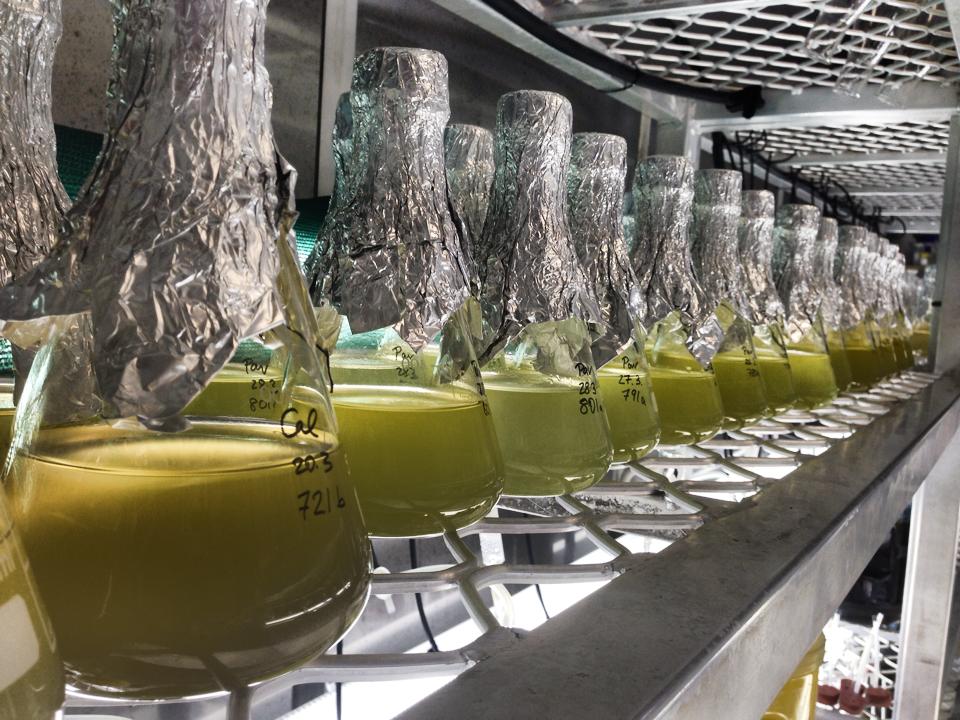
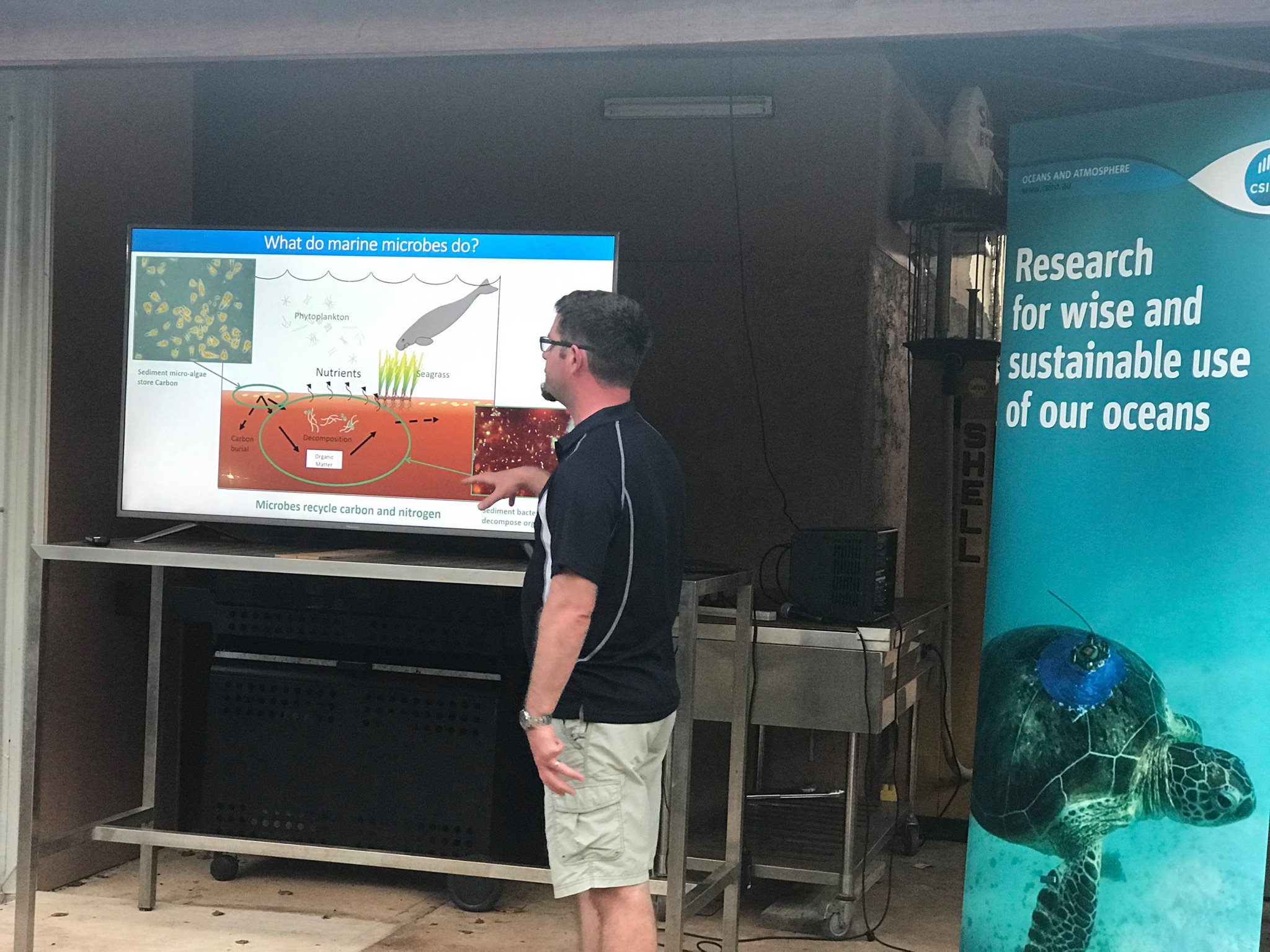
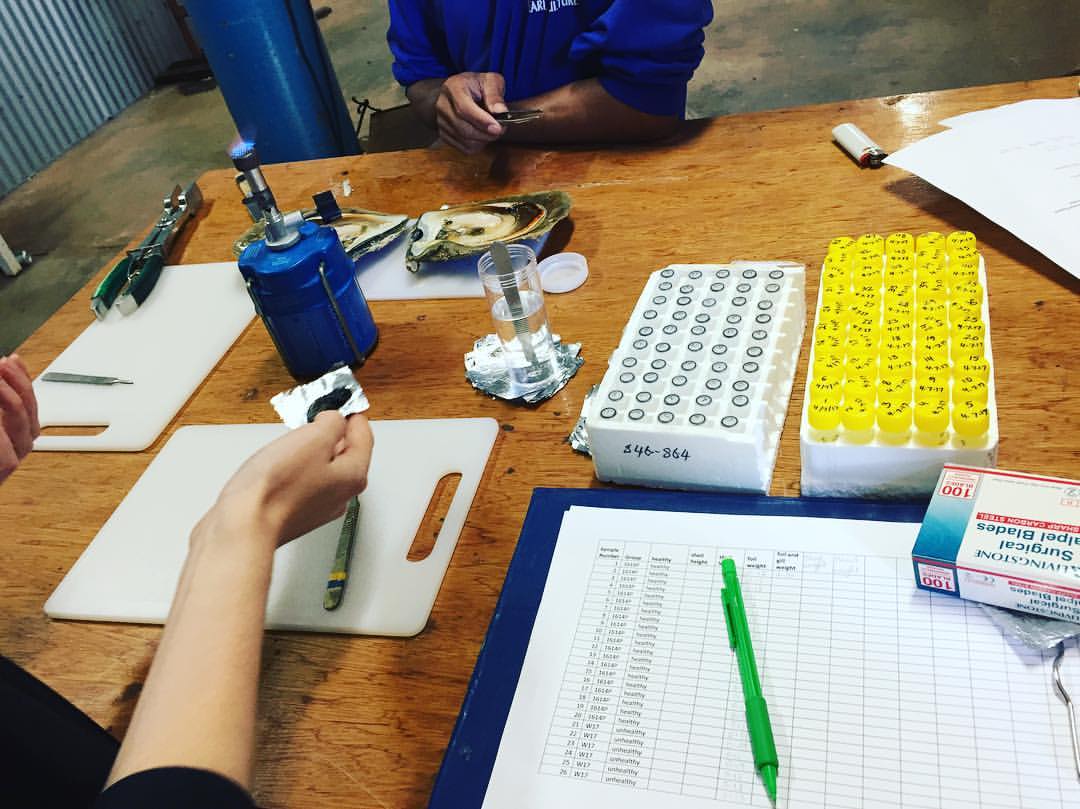
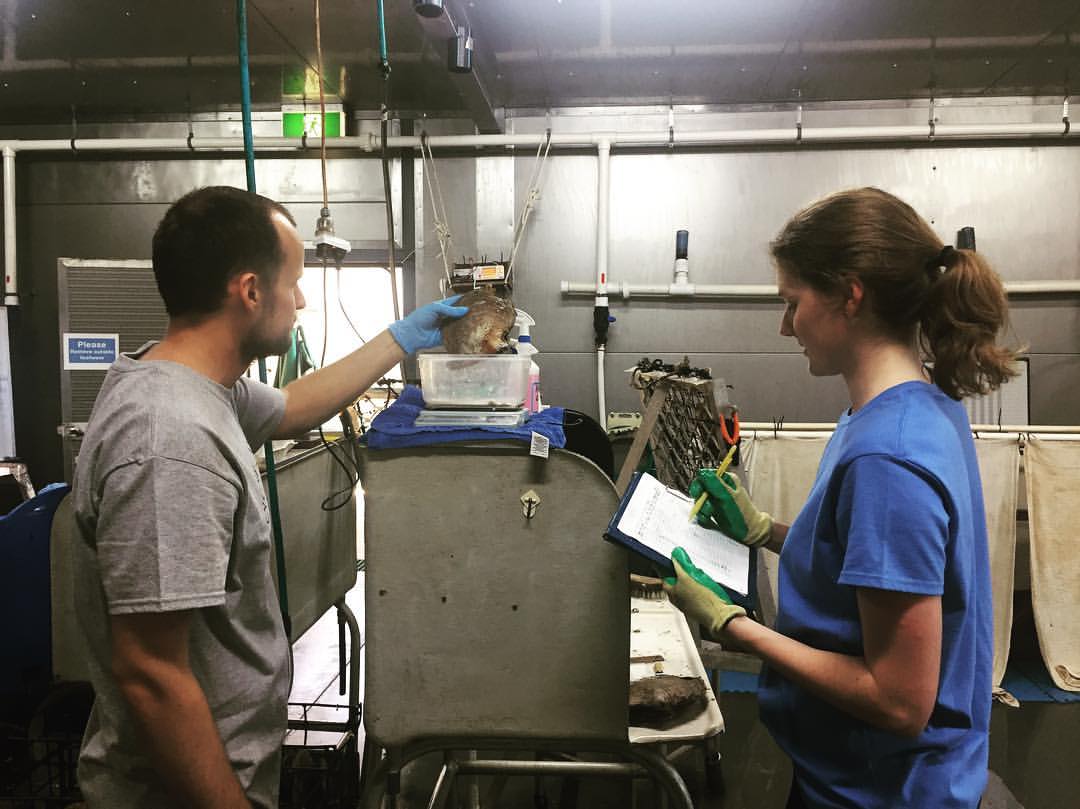
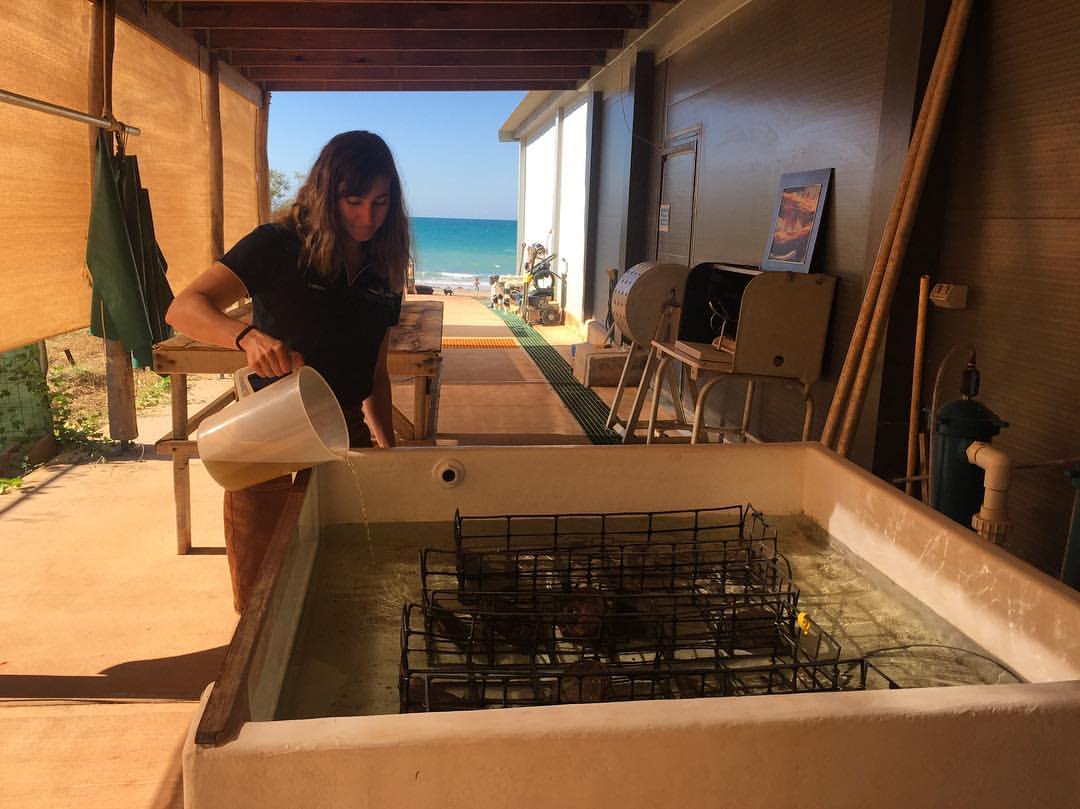
Kimberley Marine Research Station is currently constructing a pearl oyster hatchery and marine laboratory facility on the front beach at Cygnet Bay, to be fully operational year-round with designated lab areas and tanks for visitors. The facility will include ocean fed through-flow systems for filtered and unfiltered seawater on tap, fresh water, and air to service both wet and dry bench space accordingly.
A light and temperature controlled “dark room” will be included as well as numerous sizes of aquaria and tanks, microscopes and lab-wear. The facility will include limited gear storage capacity for teams wishing to leave equipment onsite between trips. For more information on the new facility, please contact us.
As part of our operational pearling facilities, Kimberley Marine Research Station has a large aquarium facility at our Seeding Shed (photographed above and right) which is located on the shores of Shenton Bluff (north of Cygnet Bay main camp). This comprises a basic open-air shed housing 7 tanks filled by an ocean-fed system, sea and freshwater on tap, electricity and both wet and dry bench space. The seeding shed is easily accessible by boat as well as
by 4WD track from the main camp. The 7 tanks are 1.5m wide x 4m long x 0.5m deep. All are fed by through-flow water systems. The seeding shed is heavily utilised for pearling operations during harvest season and is unavailable for research use at this time (from June – August each year).
Kimberley Marine Research Station also has a 10l liquid N cryogenic Dewar flask (Taylor-Wharton CXR100) and shipping case available for hire for transporting small amounts of samples at cryogenic temperatures. For teams wishing to use liquid nitrogen dewar flasks, please keep in mind that flasks must be sent from Broome to BOC Gas in Karratha for filling. This is coordinated on a weekly transfer system each Thursday where flasks are freighted to Karratha one week and returned full the following week. As such, flasks must be at the allocated transport depot by Wednesday afternoons and can only be collected once full from the allocated depot on Thursdays.
Teams wishing to use dewar flasks are asked to please consider this carefully when planning your trip and ensure that your travel itinerary and field plans fit around this filling schedule.
Please advise us of your intent to hire the dewar flask by filling out the correct sections in the Research Application ProForma and contact the Research Officer to make arrangements for filling flasks & onward transport to Kimberley Marine Research Station. All costs incurred in the process will be recovered at the end of the trip.
A limited range of related material is available for use including field guides, identification books etc. As we are building upon this library at present, it is recommended that visitors to Kimberley Marine Research Station bring any literature and books required with them.
As we are remote and have limited gear stores on-site, we ask that teams please supply all required gear for field work at Kimberley Marine Research Station. This includes PPE, field guides, chemicals, sample vials etc. What limited equipment we have will only be available to teams who have confirmed availability in writing prior to each trip.
All arrangements for laboratory space and use must be outlined in writing on the Research Application Form prior to each trip. Limited bench space and general lab use including small amounts of freezer space are included in the day fee with prior arrangement only. As these are shared facilities, please remember that availability may be limited at busy times and cannot be guaranteed without prior arrangement. Efforts will be made to accommodate last minute changes where possible but we ask teams to please ensure you have communicated plans for lab use directly with the Research Officer prior to your trip to minimise availability issues.
There are several styles of accommodation available for use for Kimberley Marine Research Station available for research groups, interns and crew.
For those staying in catered accommodation, meals are provided in the Cygnet Bay Pearl Farm mess hall. Otherwise, kitchen and household essentials are provided including bedding and cleaning products.
All accommodation has access to laundry and bathroom facilities including toilets and solar hot water showers.
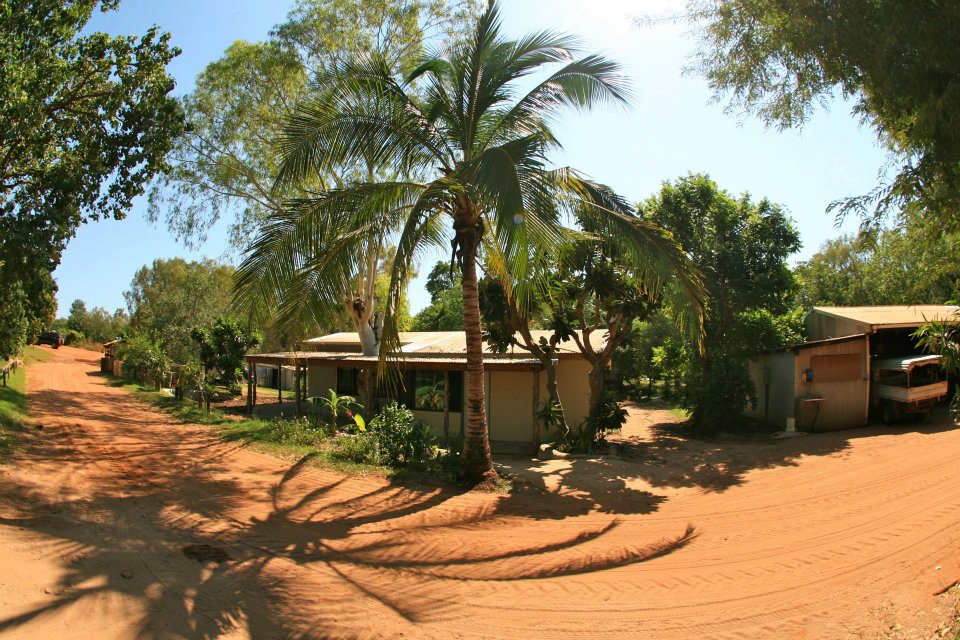
Sleeping 10 and 4 people per cottage.
Fully self contained cottages with own kitchen, bathroom, laundry and air-conditioned bedrooms.
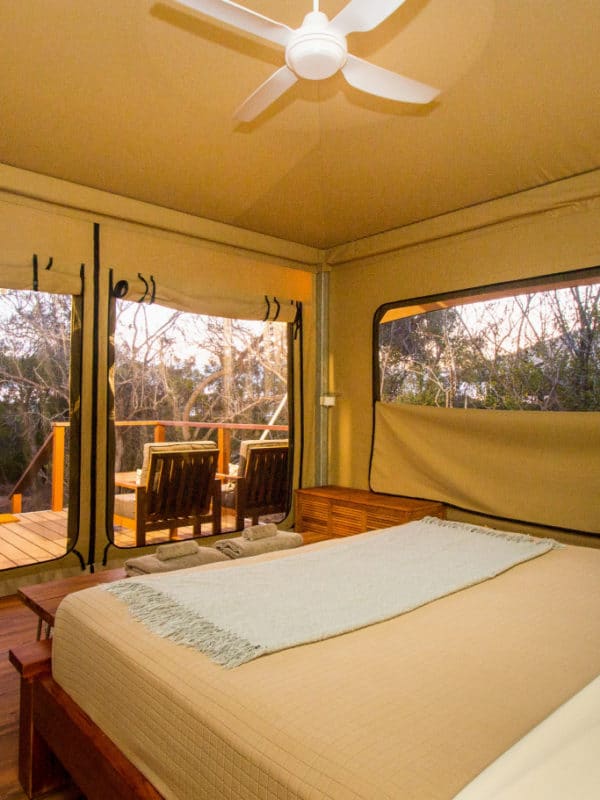
Sleeping 2 people per tent.
8 self-contained, semi-permanent tents, each sleep 2 people, with communal kitchen facilities.
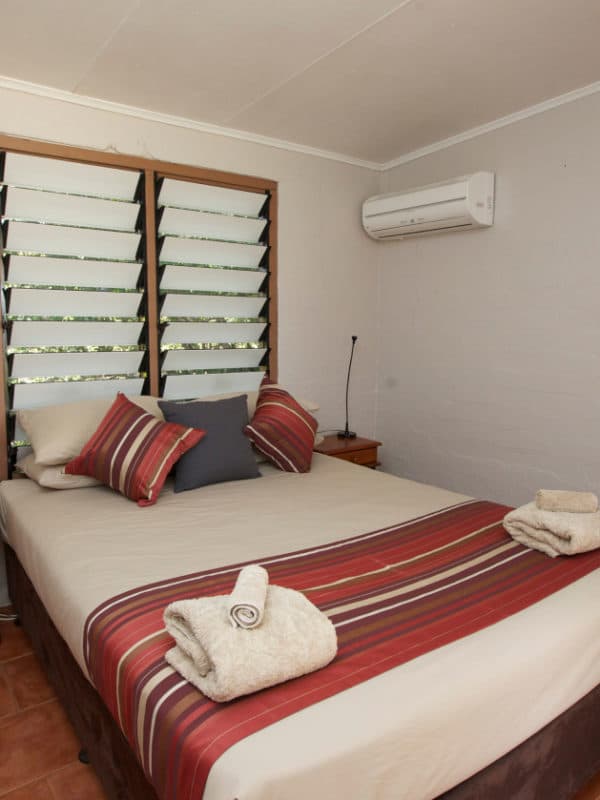
Catered backpacker-style alternative crew quarters.
Fully catered backpacker style crew accommodation in Cygnet Bay Pearl Farm at the main camp.
Kimberley Marine Research Station is a shared tourism space. We have onsite living and working kitchen facilities for interns and research teams.
Serviced communal kitchen and relaxing areas.
All accommodation has access to laundry and bathroom facilities including solar hot water showers.
Please remember that accommodation is shared with tourism facilities so availability can be limited at times. As such, we advise confirming your Kimberley Marine Research Station booking with as much prior notice as possible (ideally +3 months). At short notice, we cannot guarantee that your choice of accommodation will be available.
Catered meals are provided through the Cygnet Bay Pearl camp mess hall for interns and catering options are available for research teams.
There is a social area and kitchen which you are welcome to use. Breakfast and lunch is self-serve continental style and dinner is a buffet prepared by our restaurant chefs every night.
There is the Cygnet Bay Restaurant if you like your daily coffee or to treat yourself which serve breakfast, lunch and dinner..
As a remote research station we are protective of the local environment and waterways. When you stay with us please be respectful and caring for the eco systems, plants and animals.
All tap water at Kimberley Marine Research Station comes from freshwater wells and bores and is 100% safe to drink.
Please ensure that you list all chemicals involved in your project on the Research Application Form before coming to Kimberley Marine Research Station. As we are remote and have limited supplies on-hand, we do ask that teams please bring all required chemicals with you.
Kimberley Marine Research Station operates on a solar hybrid power system with solar panels located throughout the property alongside a series of windmills (assisted by diesel bores when required) that pump water to the station. In order to reduce associated diesel burn, we ask that all visitors please be mindful and take measures to minimise usage.
Likewise, there is little/no artificial lighting at night and we ask that teams please ensure each individual brings a torch for use at night.
As we are a remote research station please be aware of the medical, communication, transport and freight services limitations and availabilities.
Medical Services available to Kimberley Marine Research Station visitors are of an exceptional standard. The community at nearby One Arm Point, 10km by road, has two permanent nurses well equipped to deal with most minor medical issues.
The Royal Flying Doctor Service also runs a weekly clinic in the area. In the case of an emergency, the RFDS can be contacted for rapid response and direct transportation to Broome Hospital.
Internet access using Telstra NextG wireless Broadband works throughout Kimberley Marine Research Station. The station is also equipped with broadband satellite internet access which can be accessed via a shared computer in the main Cygnet Bay Pearl Farm camp.
There is Telstra NextG network coverage to most parts of the Kimberley Marine Research Station site, however, service is limited in surrounding areas and further afield.
We have onsite boating and diving facilities available for use. Our experienced skippers also on hand to offer their services and advice.
Kimberley Marine Research Station has a range of vessels available for research use:
Each vessel is equipped with adequate safety equipment as described by State and Commonwealth regulations and maintenance is conducted regularly by Cygnet Bay Pearl’s (Cygnet Bay Pearl Farm) marine mechanics.
All boat users are provided with a thorough Cygnet Bay Pearl Farm boating induction prior to vessel use covering boat handling, safety, equipment, Cygnet Bay Pearl Farm company regulations and local boating conditions.
Only researchers with adequate licensing and competency levels will be allowed to drive Kimberley Marine Research Station vessels. A current recreational marine boating licence issued in any Australian state is mandatory to drive any Kimberley Marine Research Station vessel and operation of various larger vessels requires higher levels of certification. Safe and competent boating practices must be demonstrated prior to driving vessels independently.
Where necessary, Cygnet Bay Pearl Farm experienced staff skippers may be provided upon prior arrangement. Restricted coxswains, Master 5 skipper and engineer services are all available through Cygnet Bay Pearl Farm.
Diving in the Kimberley can be dangerous with large tides coupled with the risk of dangerous tropical marine life including jellyfish, crocodiles and sharks.
However, Cygnet Bay Pearls has divers working on the pearl lines most days and, with local knowledge and consideration of the tides and weather, proper planning and on-site diligence, diving is an option to support research. Upon consideration with the Cygnet Bay Pearl Farm Executive Officer, arrangements may be made based under stringent safety and operational considerations.
Kimberley Marine Research Station does not supply any dive gear (including cylinders and an air compressor) however arrangements can be made to do so from Broome.
All Kimberley Marine Research Station researchers will require adequate ethics approval from their respective University / Institute as well as any associated collection or access permits from the Department of Environment and Conservation, Department of Fisheries etc. Applications for permits will need to be lodged and cleared well in advance of upcoming trips to Kimberley Marine Research Station and researchers must carry a copy of all permits on them relating to research to be carried out during their stay.